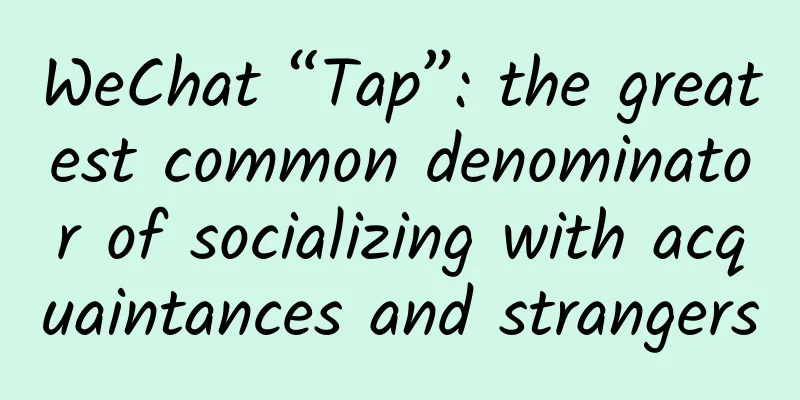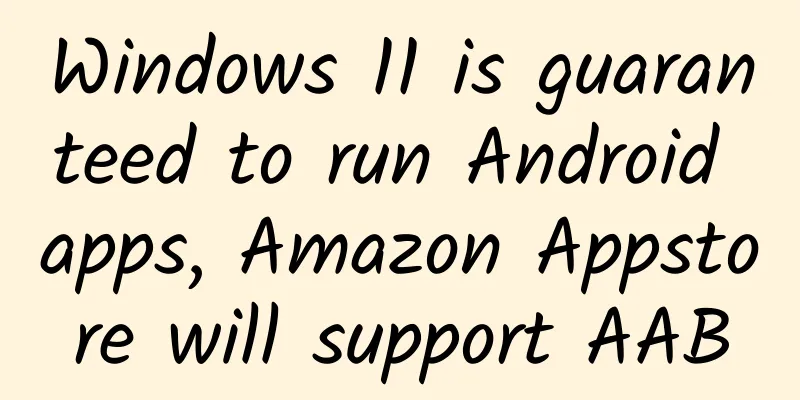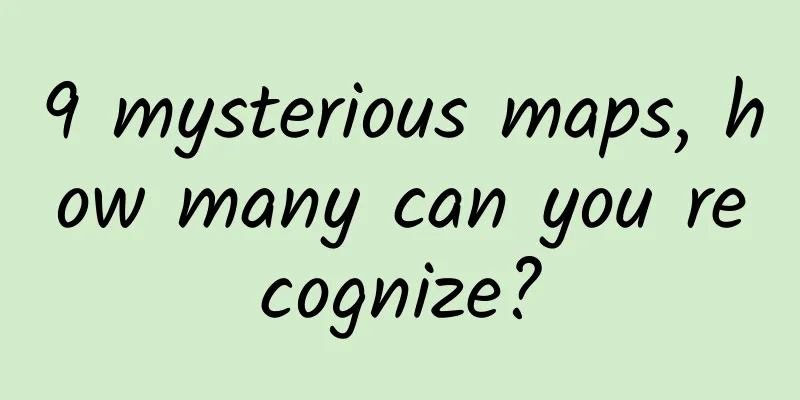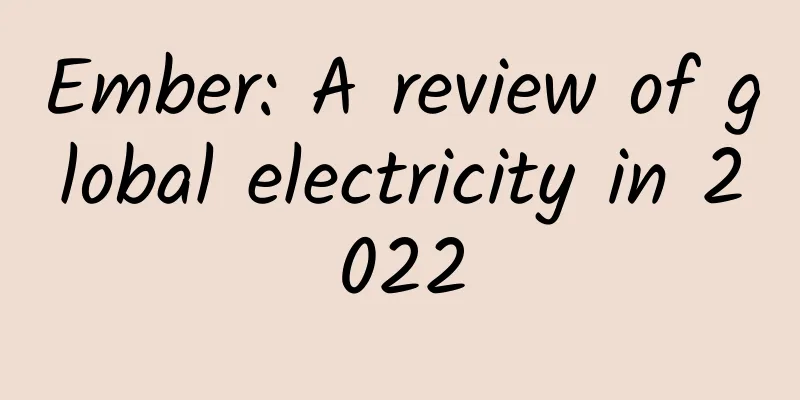WeChat “Tap”: the greatest common denominator of socializing with acquaintances and strangers

|
The day before yesterday, the WeChat team announced that it would launch a function called "Tap" in WeChat. Users only need to click on the other party's avatar twice, and the chat interface will display "You tapped xx". Except for the text record in the chat interface, the other party will not receive any form of reminder. This new function can be used in private chats and WeChat groups. The addition of this feature sparked heated discussions online, and once topped the trending search list on Weibo, with more than 700 million readers: some people quickly made dozens of spoof pictures, while others thought it was a sign of the WeChat team’s lack of restraint. However, Feng Technology believes that the addition of the “Tap” feature is the best reflection of the WeChat team’s “rethinking and starting over.” The product logic of “Papa Papa”After the launch of WeChat's "Tap", many netizens thought of QQ, another chat giant under Tencent, which also has a similar function. The desktop QQ has window shaking, and the mobile QQ also has a "Poke" function with a similar name. However, QQ's "Poke" function is not the first of its kind. More than a decade ago, Microsoft's former office software MSN added a similar window shaking reminder function. Microsoft added the "shake" function in essence to grade the traditional office scene: compared with the traditional @ and message sending, the social reminder intensity of "shake" is just as its literal meaning, weak and gentle, which can reduce the recipient's anxiety and effectively remind the user. This "light reminder" mechanism was really developed in 2007 when Zuckerberg added a feature called "Poke" to the early version of Facebook. With the continuous iteration of the feature, four reminder methods were gradually derived: hello, hug, wink, and high-five. Facebook explained the addition of "Poke" as follows: "Poke is a way for you to interact with your friends. We think it's fun to provide such a meaningless feature. Facebook encourages you to give your own understanding to the Poke feature." Although the Facebook team explained that the design of Poke was just for fun, some people believe that Facebook added Poke because of its ambiguity on the social level. Compared with traditional comment forwarding, the action of "poking" is easier and has more diverse interpretations. It can be seen as a greeting between friends or as an ambiguous pick-up. In 2007, Facebook already had a social mechanism based on acquaintances (it originated from Harvard University's alumni website). "Poke" is a move to further invade private space. Friends can also respond to each other anytime and anywhere, without the formality of emails and text messages. Messages such as "I'm here", "Hello", "Look at me" can all be completed through "Poke". The private and scattered social behavior of "Poke" not only maintains the online relationship between friends, but also satisfies the user's "desire for self-expression". British sociologist Anthony Giddens once proposed a view called "pure relationship", which is a relationship based purely on trust and weakly correlated with society and economy, but maintaining this relationship can bring satisfaction to both parties. Due to the lack of trust, the disclosure of information between strangers is dangerous. "Poke" represents a tentative trust, although the meaning it can express is vague.
Interestingly, in 2010, Queen Elizabeth II of the United Kingdom also joined Facebook and opened a Facebook page called "British Monarch", but curious American netizens found that you cannot take the initiative to "Poke" the Queen of England. It seems that "poking" is still a bit rude for powerful public figures. From the product evolution of "Tap", we can see that it has always existed as a "light reminder" tool in the social interaction between acquaintances and strangers. WeChat also said in its official reply that "Tap" is similar to the greeting function of Alipay. But in addition to this, as China's largest communication application for social networking among acquaintances and corporate contacts, WeChat's launch of "Tap" may also be intended to improve the signal-to-noise ratio of information. WeChat improves signal-to-noise ratioIn fact, one of the shortcomings of WeChat that has long been criticized is the ubiquitous reminder function. The more open the circle, the more vague the audience. The @ in the WeChat group and the personal private message chat only have two levels: "reminder" and "silent". This has led many people to turn on the reminder function due to work or personal relationships, but the ubiquitous push has contributed to the proliferation of useless information, which is obviously inconsistent with Zhang Xiaolong's original intention of creating WeChat. In my opinion, any good product is a good tool. A good tool should not stick to people, but should help users complete their tasks very efficiently, rather than asking them to play with it for a while or use it for a while longer after use. That is not a very efficient performance. In the past two years, WeChat's reminder interface has begun to try to be graded. In version 7.0.0, WeChat added a "strong reminder" function, which allows you to set a special user to pay attention to messages. When his message arrives, WeChat will display the reminder message in full screen and then disappear. This enhances the priority of messages from close people and improves the signal-to-noise ratio. In version 7.0.9, WeChat added the much-anticipated "quote" feature, which allows users to directly comment on a sentence in the group without having to search for it as usual. WeChat has begun to move from a single "information push machine" to a more detailed one. The launch of "Tap" marks a step forward in WeChat's message classification strategy. Although the friends who are "tapped" and the friends in the group can see the text box reminder, the phone will not push the message, and even will not vibrate during the use of WeChat. The meaningless social interaction between private and public screens is diverted by "Tap" and becomes an emotional regulator. However, Feng Technology believes that for instant messaging software like WeChat, which has a large number of users and complex levels, "Tap" may not reduce our social pressure. Although the "Tap" function has triggered a nationwide carnival of mutual photos, it is still difficult for older users to learn. But this is caused by WeChat's own ecology, and does not represent the pros and cons of the function itself. This can be said to be a standard template for a "big and comprehensive" application. Even for Facebook, a veteran in the social networking field, the priority of "Poke" has been retreated again and again in the face of an increasing number of new features. Now you can only see the "Poke" reminder list in the third-level menu. This kind of easter egg-level function is destined to become a niche. But Feng Technology believes that WeChat is on the right track. From the improvement of the reminder function to the addition of dark mode, WeChat has begun to rethink the meaning of "communication" in the past two years. It tries to introduce successful experiences at home and abroad to this platform with a billion users. Although WeChat is still a long way from perfection, Feng Technology has indeed seen the WeChat team's "return to the original intention." What is the best communication software?Ten years ago, some people believed that stable, fast and data-saving characteristics were the hallmarks of excellent communication software; five years ago, some people believed that concise, without any extra decorations and "the same for everyone" were good communication software; but in 2020, there is no standard answer to the demand for communication software: some people need security and quietness, some people need a broad network of contacts, and some people regard WeChat itself as their job; as the greatest common denominator of China's communication software, every update of WeChat is bound to attract the attention of thousands of people. As a WeChat user, Feng Technology certainly does not think WeChat is perfect. Its non-layered reminder mechanism and relatively simple messaging function have always been my pain points. But it is undeniable that WeChat also bears most of Xiao Lei's work and life. Today's QQ is simple and fast enough, and Telegram's Bot is extremely easy to use, but Xiao Lei still spends most of his time on WeChat. Perhaps for us, the pros and cons of a communication app are not everything, but the social circle you live in is everything. This is certainly a kind of lack of freedom, but it is also life itself. If the WeChat team can stick to the "tap-tap" style of innovation, pay more attention to the opinions of niche groups, and give users more freedom, I believe WeChat can reach a new level. |
Recommend
Tencent invested in Toutiao? Here are three questions
Reliable we-media outlet Kaiba broke the news tha...
How much does it cost to make the Naqu Electrical Mini Program? What is the quotation for the production of Naqu Electrical Mini Program?
WeChat Mini Program is an application that users ...
Fei Ge's book Douyin popular traffic monetization, live broadcast popular traffic selling goods to make money secrets, earn 5224 yuan a day
Fei Ge's book Douyin popular traffic monetiza...
Apple product system comprehensive upgrade IOS15 is coming
Recently, there is news that Apple will release t...
5 signs that you may have sarcopenia! Be sure to do these two things!
Whether you are at work or at home recently In fa...
618 Marketing Promotion Plan Creation Guide, 1 Step to Get It Done
Every marketing plan with soul must not be a pile...
Just announced! Shenzhou 14 will be launched tomorrow! The astronauts are them…
The China Manned Space Engineering Office reveale...
Sheng, Dan, Jing, Chou, why is Mo missing? Learn all the roles in Peking Opera in one go
Everyone still remembers it, right? The five elem...
An inventory of the best value-for-money headphones at the end of the year: Which would you choose, WF-SP800N or Powerbeats Pro?
In recent years, "true wireless" headph...
Interpretation of Huawei's Ren Zhengfei's speech: Can enlightened despotism promote innovation?
In 2012, President Ren Zhengfei held a meeting wi...
"Health from Food" Series丨What foods are good for people with high uric acid?
The 2021 China Hyperuricemia and Gout Trend White...
Lao Duan talks about OTT: Things about multi-screen interaction
Duan Youqiao, an artist of iQiyi. From an Interne...
B station product analysis report! (2019)
From 2009 to now, in ten years, Bilibili has grow...
Hail + rain + strong wind! The heaviest rainfall period is coming, pay attention to these places!
In mid-May, the southern region will enter a rain...
Can walking speed affect life expectancy?! These 4 walking postures may be a sign of disease!
Walking is something we do every day and is one o...









